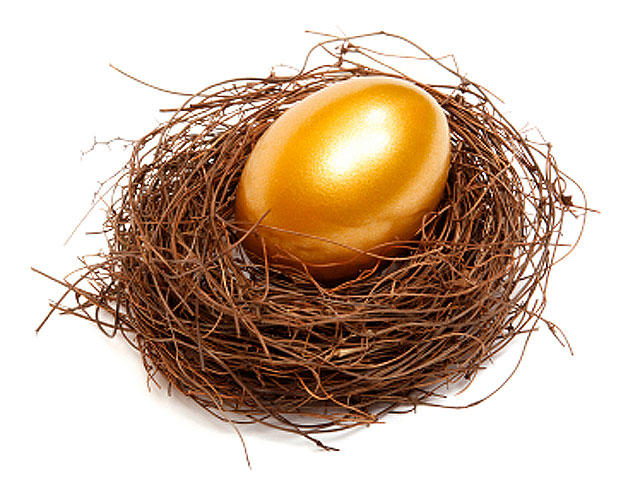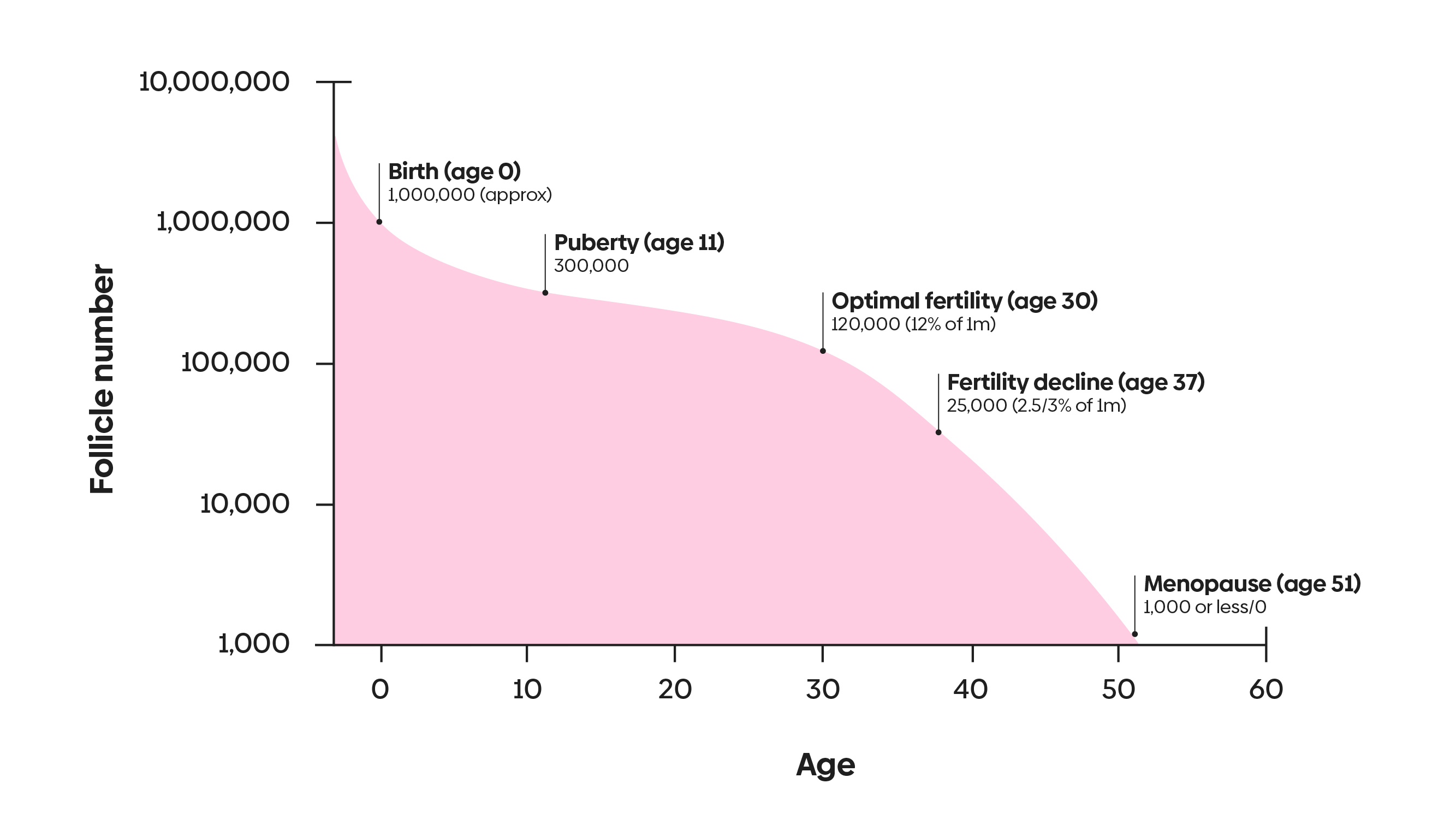how many eggs are female humans born with
An average of two million eggs are present in a womans body of which nearly eleven thousand perish on a monthly basis in the pre-puberty stage. At birth there are approximately 1 million eggs.
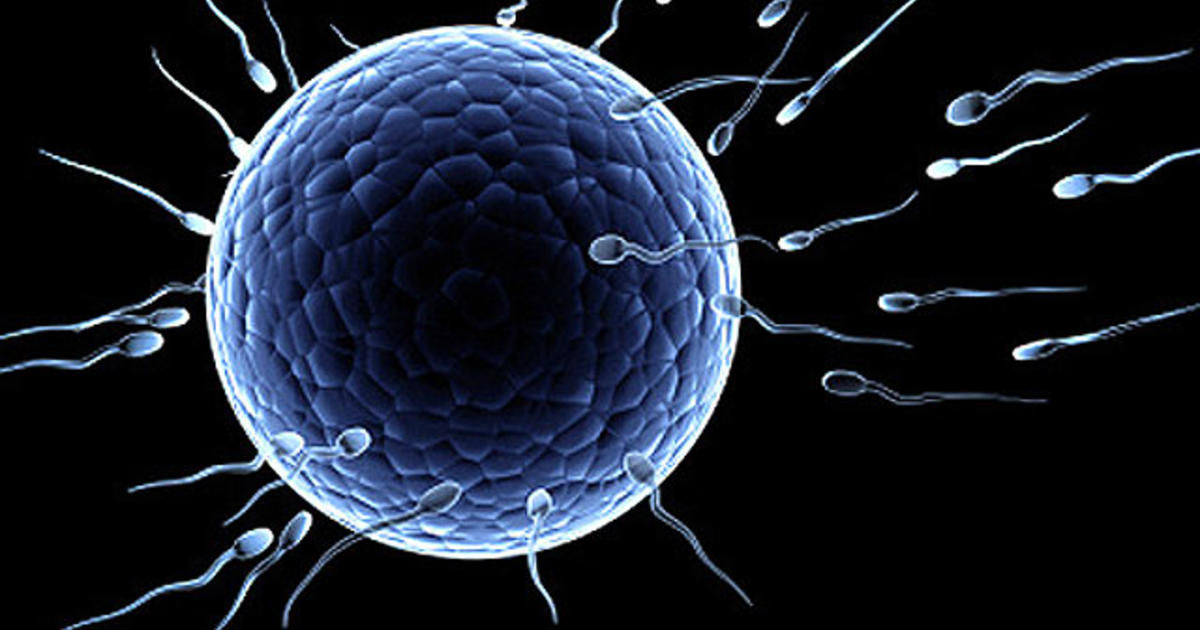
Human Eggs 9 Fascinating Facts
Although women are born with millions of eggs the quality of these goes down over time.

. Amazingly a female fetus has 6 to 7 million so by the time shes born shes already lost the majority. How many eggs is a female human born with. Apr 21 2021 -- A human female is born with around 1 million eggs but most of those are reabsorbed so that by puberty there are only around 300000 remaining.
Most know that the older women become the harder it is for them to conceive. By 20 weeks gestation the tiny developing ovaries in a human foetus contain about five. According to the American College of Obstetricians and Gynaecologists ACOG a female fetus typically has around 67 million eggs at 20 weeks of gestation dropping to 12 million at birth.
A woman is born with all her eggs. You are born with all the eggs you are ever going to have. In fact its been estimated thatat the time of her birtha woman can have anywhere between 35000 and 25 million ovarian follicles so its possible for one woman to be born with 50x more eggs than another woman.
Unlike males who constantly make. How many eggs are female humans born with. A human female is born with a non-renewable supply of egg cells in her ovaries.
Of these only 300 to 400 will be ovulated during a womans reproductive lifetime. A female foetus has around 4 million eggs. Its estimated that up to 6 million eggs are produced within the gestating embryo by around 20 weeks of the mothers pregnancy.
When a woman goes through menopause and stops having periods she has very few follicles left. By the time the baby is born the number of. By the early 20s a female would have about 150000 to 300000 eggs.
Eggs are made when women themselves are in the womb. To be more precise when a person with ovaries is born they contain about one to two million immature eggs or follicles. Baby girls are born with 1-2 million follicles immature eggs in their ovaries.
Baby girls are born with 1-2 million follicles immature eggs in their ovaries. If you figure that on average a female will release one egg with ovulation each month in a year thats 12 eggs. Only 3---400 of these eggs end up being ovulated.
Over a lifetime the vast majority of follicles will die through a process known as atresia. At birth the normal female ovary contains about 1-2 millionoocytes eggs. A 20-week-old female fetus has around 7 million eggs.
Conventional science has taught us for years that women are born with all of the eggs they will ever have. But most probably dont know its because women are born with a limited supply of eggs and eventually they will run out. A woman is typically born with around 1-2 million eggs in their ovaries 1.
Fertility can drop as a woman ages due to decreasing number and quality of the remaining eggs. As a fetus early in development a female has around a whopping 6 million eggs. The number of millions that female fetuses have is even larger.
And by the time of puberty only about 300000 remain. Many of those eggs will be lost before puberty sets in through a natural process. From birth on they decrease in numbers by a process called atresia and they reach 300000 by the time a girl hits puberty.
Each month a woman continues to lose egg cells so at the point of menopause a woman will likely have fewer than 1000 egg cells left. If you multiply that number by the number of years a woman has her period it totals about 400 or so. It is never too late to improve your skin elasticity Learn more The number of these eggs oocytes to be precise is steadily reduced so that when a baby girl is born she has between 1 and 2 million eggs.
The theory has been that a woman is born with one to two million immature eggs at birth and will slowly begin losing them over the course of her lifetime. This is one of the main reasons why pregnancy is more difficult and less likely at ages greater than 35 years. You only have all the eggs you are born with.
Many die off before we even hit puberty meaning were left with around 700000 egg cells by the time menstruation begins. In her teenage years a woman has around three hundred thousand to four hundred thousand eggs although the actual count differs widely based on the size of a womans ovarian reserve. And with his help find out how many eggs are females born with.
The theory has been that a. This rate becomes accelerated after 35 years of age. This will reduce to about 100000 to 150000 eggs in the early 30s to about 27000 eggs in the late 30s.
How many eggs can a woman have. Unlike sperm which are produced daily throughout a lifetime human eggs are finite and found in one okay two baskets ovaries.

Evidence Suggests Women S Ovaries Can Grow New Eggs New Egg Ovaries Women

5 Female Egg Cell Facts Human Eggs Natural Cycles Fertility Awareness Birth Control App Hormonal Birth Control

Artwork Of The Female Reproductive System Showing The Location Of The Ovaries Female Reproductive System Reproductive System Ovaries

2 Egg Cells From The Ovaries Move Through The Uterine Tubes The Path Of The Egg During Ovulati Reproductive System Female Reproductive System Fallopian Tubes

Did You Know This About Ovaries And Eggs Anatomy For Kids Anatomy Art Girl Anatomy Cycle Drawing

Evidence Suggests Women S Ovaries Can Grow New Eggs Ovaries Human Fertility
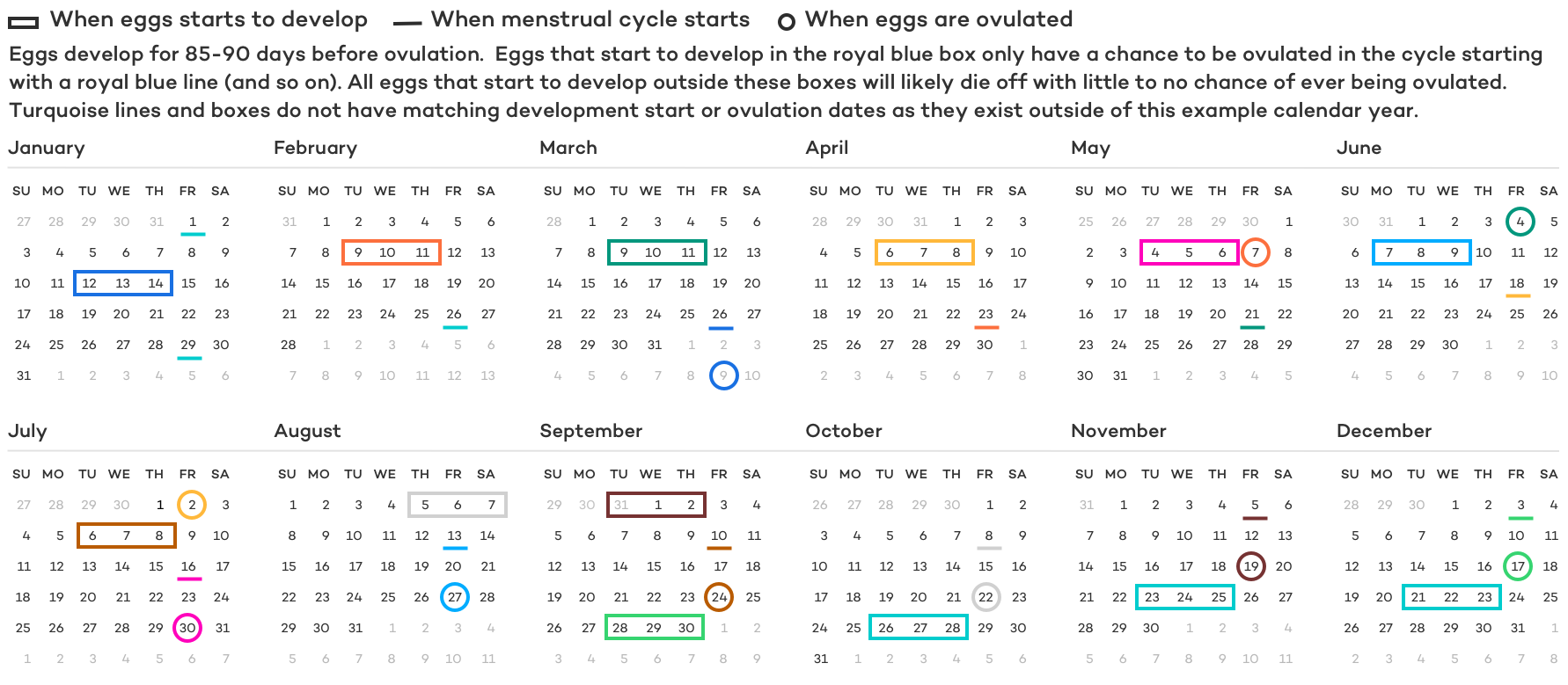
How Many Eggs Do Women Have At Every Age Cny Fertility
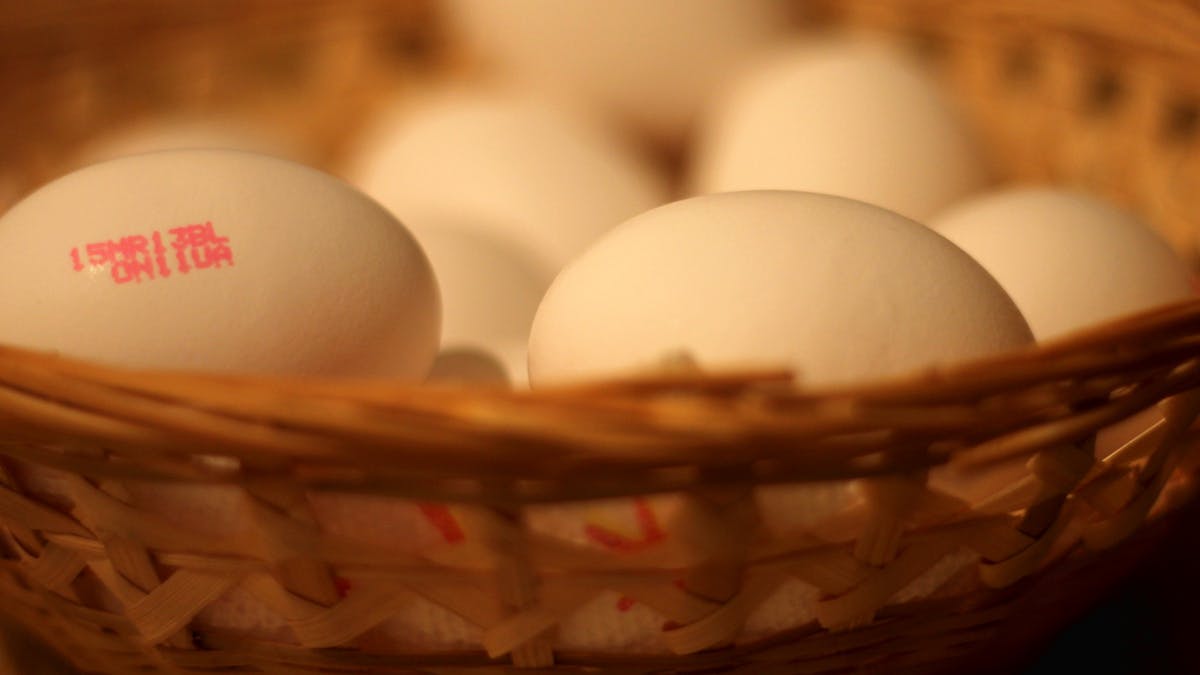
Why Women S Eggs Run Out And What Can Be Done About It

How Many Eggs Does A Woman Have The Evewell
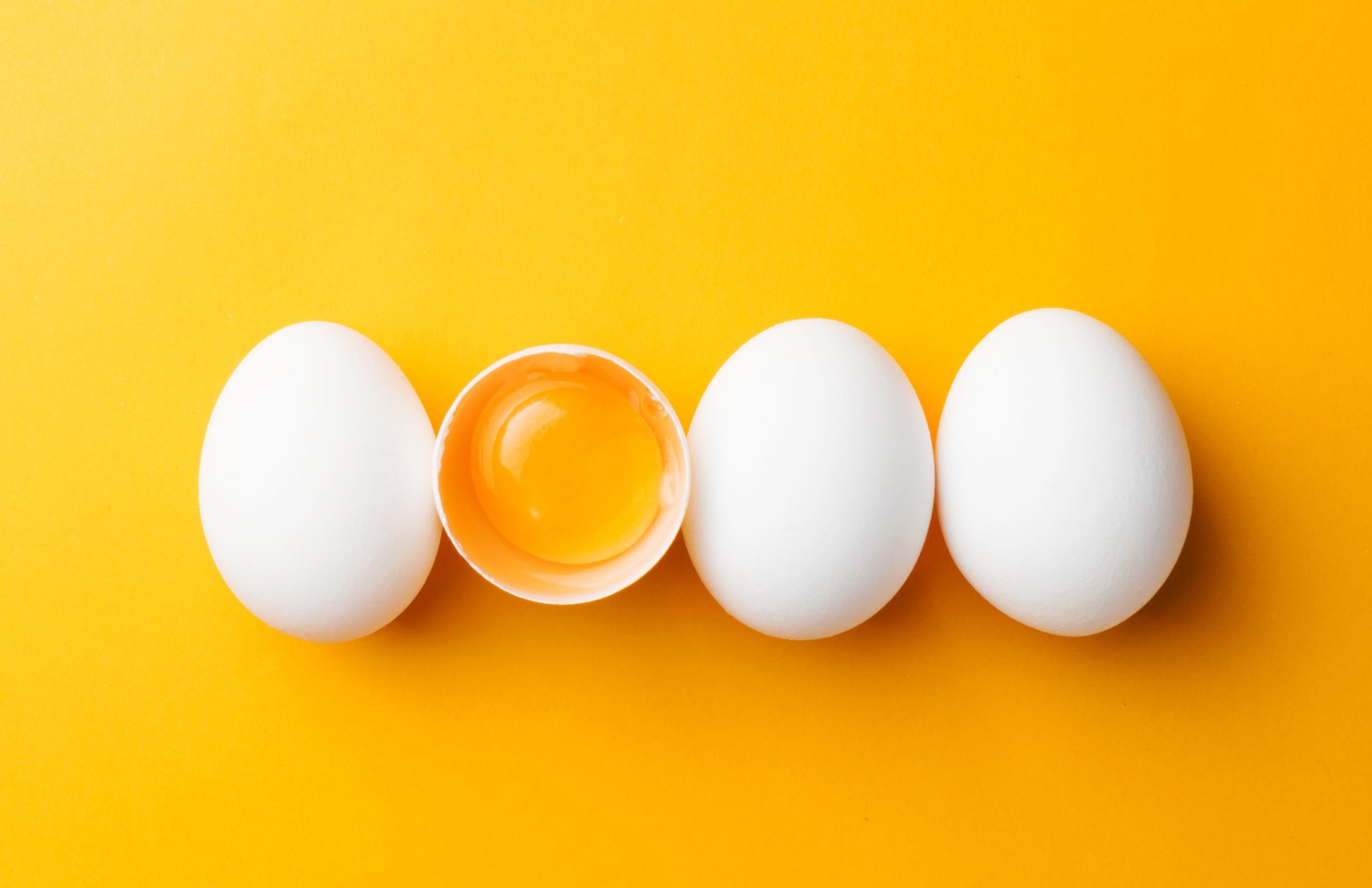
How Many Eggs Do Women Have At Every Age Cny Fertility
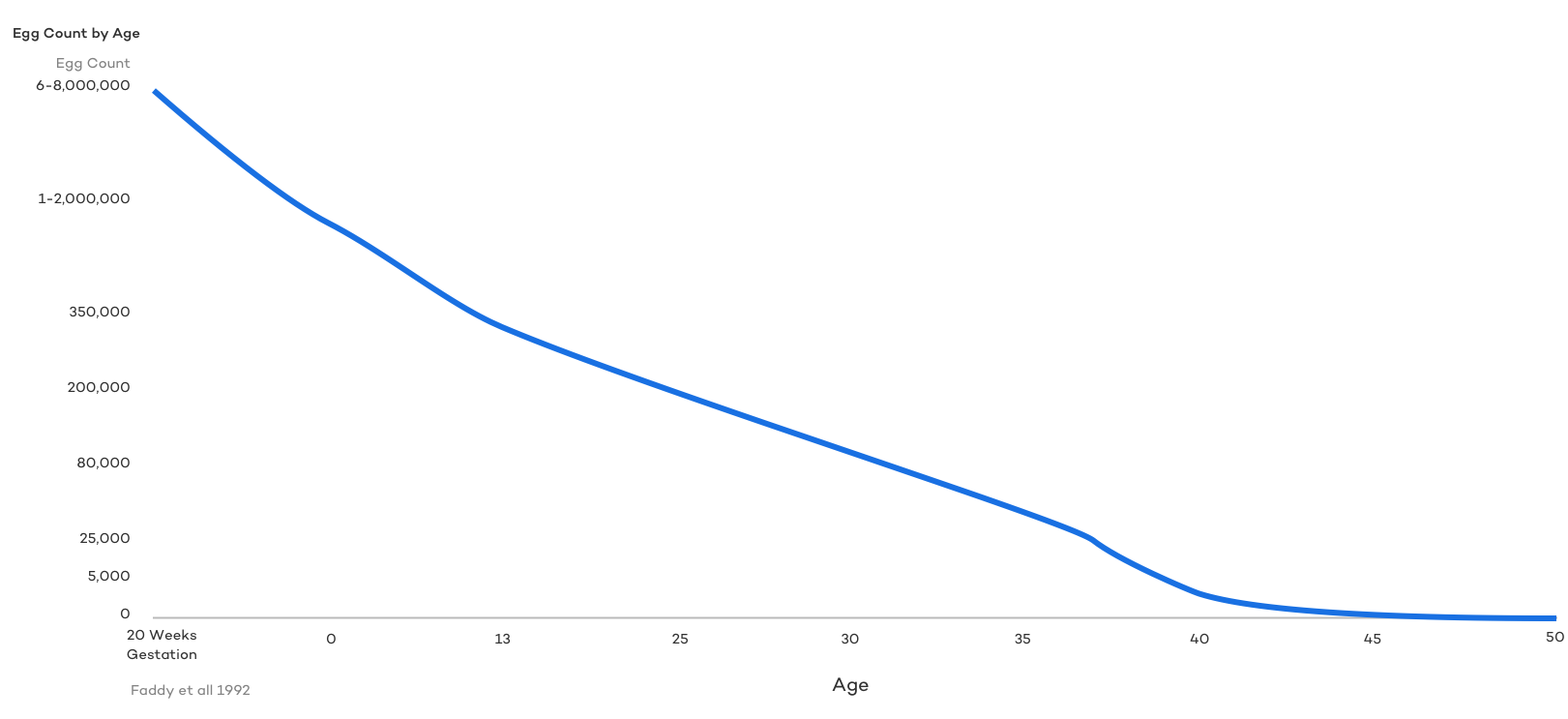
How Many Eggs Do Women Have At Every Age Cny Fertility

Human Eggs 9 Fascinating Facts

The Human Egg Cell Egg Donation Altrui



